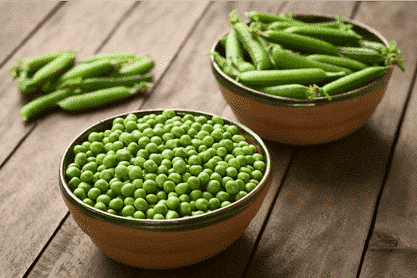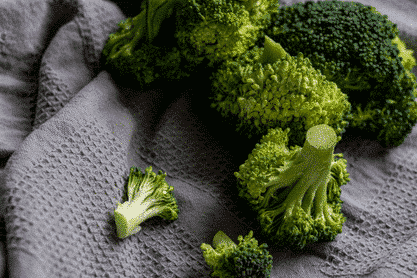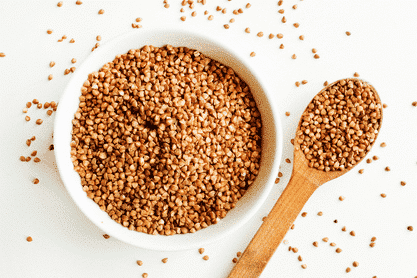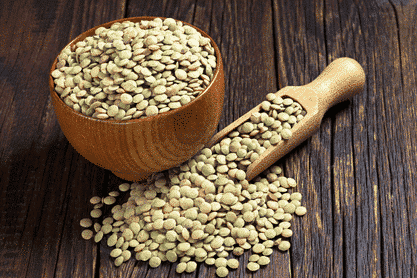Eight foods to increase Fertility in Women
When is the right time to start a healthy diet when planning to become pregnant? According to TCM (Traditional Chinese Medicine), parents-to-be should “prepare” their bodies one or two years before pregnancy. The body should be in the best possible shape to enable steady ovulation and ensure the required conditions for fertilisation and implantation of the embryo.
Besides getting enough sleep and reducing stress, the focus here is on nutrition. As there are foods that can increase fertility naturally and without chemicals. This applies to both women and men. This article focuses on women’s fertility — we devote a separate article to men.

1. Frozen peas
Let’s start with a simple, yet ingenious food in terms of increasing fertility: frozen peas. Why should you eat these little greens regularly? They contain an extra portion of folic acid: just 150 grams of cooked frozen peas provide you with 117 micrograms of folic acid. This is only topped by leaf spinach, which contains about 158 micrograms of folic acid when cooked — but spinach, as we know, is not everyone’s cup of tea. Folic acid belongs to the family of B vitamins and is essential for you if you plan to become pregnant. It plays an important role in the development of the embryonic nervous system while also regulating cell division and growth processes. Chickpeas, asparagus and green vegetables are also rich in folic acid.

2. Salmon
A pregnancy is in the cards for you? Then try salmon! Salmon is a cold-water fish that is rich in fatty acids and therefore particularly in the healthy omega‑3 fatty acids. These have a positive effect on the uterus and especially on the quality of the cervical mucus. This is important for the implantation of the fertilised egg. Omega‑3 fatty acids also have a positive effect on the mitochondria in the egg cells: the cellular power plants are sufficiently supplied, which in turn benefits fertility.
You can also supplement the fatty acid DHA contained in salmon as soon as you get pregnant: it is vital for the baby’s brain to mature.
You don’t like salmon? Then try adding sardines or herring to your diet, or the vegetable alternative in the form of linseed oil or rapeseed oil.

3. Ginger
Ginger root too is said to have a very positive effect on fertility. The reason: the spicy ginger stimulates blood circulation. An optimally perfused uterus is essential for the production of high quality cervical mucus, which — as you already know — is absolutely essential for the egg to be able to implant. Sliced Ginger in tea or food, both way it works wonders. Alternatively, you can treat yourself to an abdominal massage with warmed ginger oil.

4. Broccoli
Broccoli is a controversial vegetable: Children often don’t like the green cabbage at all, but health conscious people swear by broccoli. Rightly so — and if you have a desire to have children, you should consider eating broccoli from now on. Reasons needed? The green florets contain a lot of folic acid and thereby inducing the production of oestrogen. And that in turn is vital for eggs and their implantation in the uterus.

5. Buckwheat
Buckwheat can be easily added to salads or muesli, preferably roasted.Are you trying for babies? Try this so-called pseudo-cereal. Just 100 grams cover a quarter of your daily magnesium and iron requirements! Both sufficient iron and magnesium levels are absolutely vital for a pregnancy. Low magnesium and zinc levels are often blamed for not becoming pregnant easily. Similar to ginger, buckwheat also promotes blood circulation by transporting nutrients to the cells. You can use buckwheat as flour, or grind the small grains and eat them as buckwheat porridge in the morning.

6. Lentils
A study commissioned by the National Health Institute has found: There is a distinct connection between iron deficiency and reduced fertility. You should therefore have your iron levels checked by your doctor and act quickly if deficiency is discovered. Foods rich in iron include lentils, but also wholemeal products and other pseudo-cereals such as quinoa or amaranth. And in addition: Lentils not only replenish your iron stores, but also provide your body with folic acid.

7. Peppers
Peppers are healthy — especially for women who want to have children! Why? The vitamin C they contain is an immune booster and helps you absorb iron. The red, yellow and green peppers also contain a lot of vitamin E, which in turn helps the egg to implant in the uterus.

8. Monk’s pepper
Admittedly: Monk’s pepper is not a common food you can buy in the supermarket. Nevertheless, “Agnus Castus”, as it is called in Latin, really is an absolute cure. The herbal extract supports normalizing an irregular cycle. Especially when prolactin levels are elevated and you suffer a shortened cycle and irregular ovulation as a result, you should try monk’s pepper. It comes in tablets and as a tincture available pharmacies. But note that you have to take monk’s pepper regularly and over a period of at least two months before its harmonising effect becomes notable.
About Fertilly
At Fertilly, we have made it our mission to accompany couples (homosexual and heterosexual) and singles on the way to fulfilling their child wish. In doing so, it is important to us to create transparency in the area of fertility services, to provide information and knowledge on the topics of pregnancy and fertility and to help you to find the most suitable Fertility Center. Through cooperation with first-class Fertility Centres and clinics in Europe, enquiries about Fertilly are given preferential treatment. This means that our patients avoid the usually long waiting times and get appointments more quickly.
If you would like more information about Fertility Centers, success rates and prices, please contact us using this questionnaire. We will advise you free of charge and without any obligation.
-
Answer the first questions in the online form in order to book an appointment. This way we can better address your needs during the conversation.
-
We will find the best contact person for your individual needs. Schedule 20 minutes for the consultation.
-
We will introduce you to the right fertility clinic from our network, make an appointment and accompany you until your wish for a child is fulfilled.










